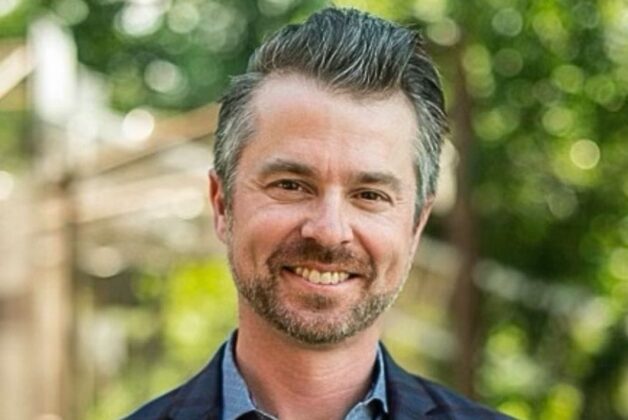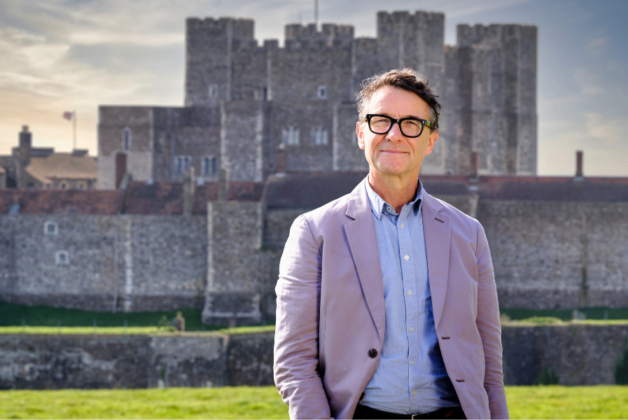Words: Alistair Hardaker
Young Brontë enthusiast Lucy Powrie explains her evolution from fan and YouTuber to Chair of Brontë Parsonage Museum in Yorkshire.
As news broke last month of a new Chair at the Brontë Parsonage Museum, the 25-year-old appointee Lucy Powrie—touted as the youngest in its history—said public reactions had been positive, but she assumed not reactions would be so kind in private.
“I started to realise that there will be people who look at me and think I’ve been appointed because I’m young,” Powrie told Advisor.
The reality couldn’t be further from the truth. Powrie’s journey to becoming Chair began more than a decade ago when, as a teenager, she began recording videos for YouTube. The channel, in which she shares her thoughts, and recommendations.

Among the books she read and shared with her growing audience was the Brontë back catalogue. The love of these books blossomed, leading her to join the Brontë Parsonage Society, which runs the Brontë Parsonage Museum in Haworth, Yorkshire.
Powrie went on to become the Society’s Young Ambassador in 2018, having sent an email to the museum’s comms and marketing lead (and now Director, Rebecca Yorke) explaining her interest in the Brontë and the growing audience of fans.
I wouldn't even know where to start or where to look [for fellow Chairs]
She has since run a Brontë bookclub on YouTube, held in-person events at the museum, and became “an advocate for young people visiting the museum”, which she said was a “dream come true”.
Last year Powrie became a trustee of the Society’s board. More recently, as the Society’s former Chair Julian Sladdin stepped down, an opportunity arose to lead the board.
“You don’t see many young people as Trustees, or Chair, Vice Chair”, Powrie said.
One of the concerns about stepping up to the role of Chair was “maybe I don’t know everything about a specific area”, she explained.
“I was aware of the barriers and I just decided I would step over them,” she explained; “it wasn’t like I had designs to climb up [the leadership ladder], but it was something I had to think very carefully about and just go for”.
“The biggest barrier to young people finding leading positions in museums is imposter syndrome. For a lot of young people, it wouldn’t occur that you could be on a board or could be involved, boards typically skew older.
“There’s also an assumption in welcoming young people onto a board that you have to alienate other demographics, which I don’t think is true.
“The point of a board is not that you are one person standing alone. It’s multiple people with a different background and experience all collaborating and providing feedback.”
Despite Powrie’s social media following, which runs into the tens of thousands, she does not consider herself an ‘influencer’; not least because she has since established herself as an author in her own right, publishing a series of Young Adult Fiction novels.
“I don’t try to influence people to read, I just want people to follow along and share their lives reading as well”, she said.
“As a teenager when I visited the museum it was so great, because I walked through the doors and there were people exactly like me, and my age, who loved the Brontës. I’d never seen that anywhere,” she said.
Powrie said her approach to creating a following online has been centred around building community and sharing experiences. Her approach as Chair will be much the same.
“People are always looking for [community], and they are so passionate about the Brontës. They want to talk about them, they want to share their opinions and theories. We’re talking about women who were born two hundred years ago but feel so relevant.”
Demystifying the role of the museum board
Her second goal will be to shed some light on her role, what it entails, and how other young people might replicate her success.
Asked if she was in contact with any other chairs, Powrie said “I wouldn’t even know where to start or where to look!”.
“It’s something I’d really like to think about during my tenure, how can I use my voice in a bigger conversation, and I’d like to demystify the process for young people.”
“One of the things I’ve loved about my experience so far is about how much I’ve learnt from everyone else I’ve been working with. It’s a collaborative process,” said Powrie.
“We have to think very consciously about the barriers that are in place that might stop someone from joining a board,” Powrie said, explaining that repeating the same recruitment tactics can’t be expected to create better results.
“Our boards should be inclusive and representative of society, but it’s how we make members feel included when they’re on the board.”





